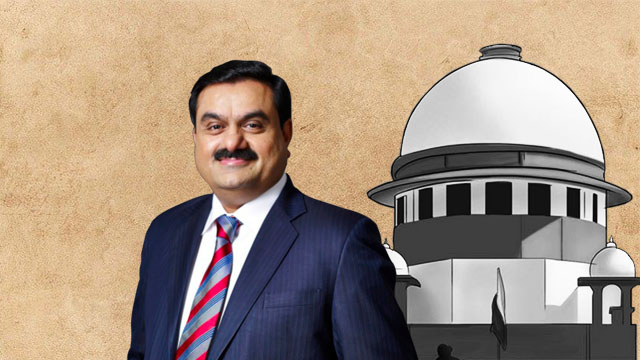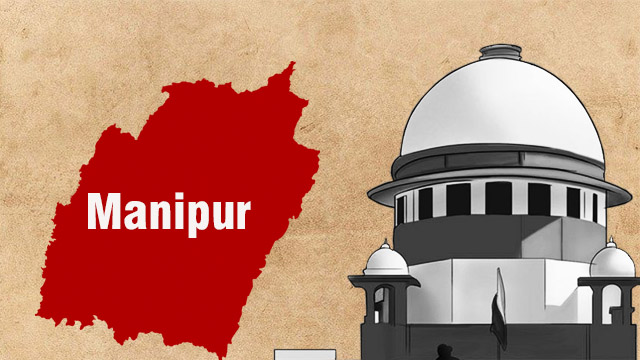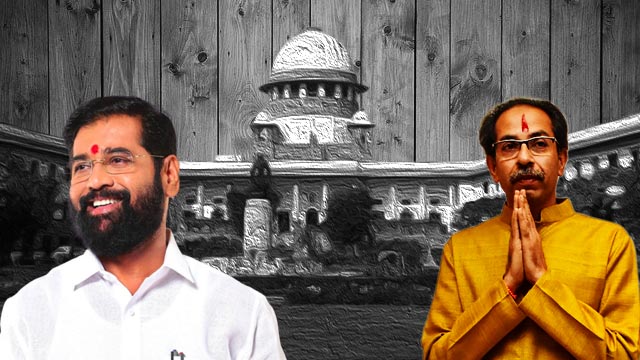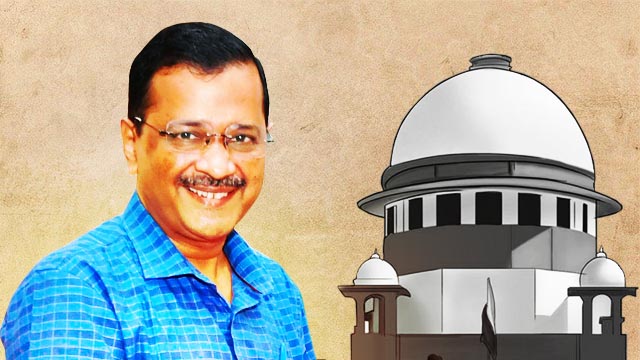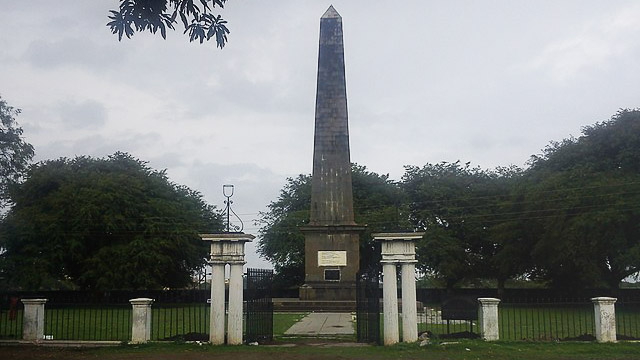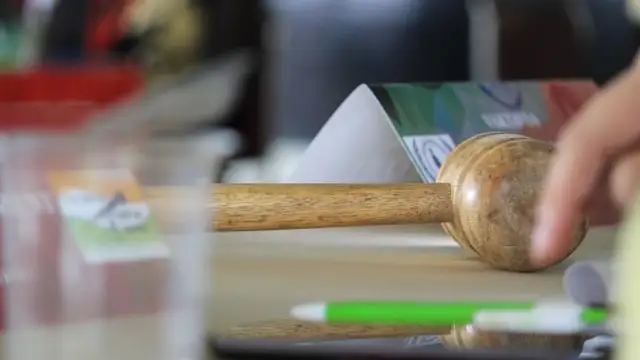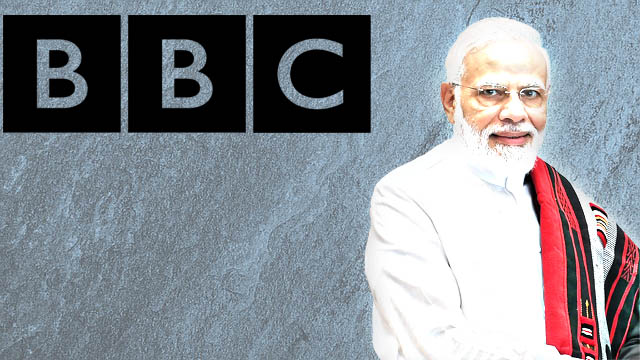India’s Supreme Court on Wednesday, May 17th, ordered the Securities and Exchange Board of India (SEBI) to complete its probe into the allegations of stock price manipulation by the port-to-power conglomerate Adani Enterprises, highlighted by the Hindenburg Research report, within August 14th.
A Bench headed by Chief Justice of India (CJI) DY Chandrachud, consisting of Justices JB Pardiwala and PS Narasimha, rejected the stock market regulator’s plea for additional six months’ time allotment for the completion of the investigation. The Bench also directed the stock market regulator to file an updated status report on the investigation.
The stock market regulator was directed by the Supreme Court to probe the allegations against Adani Enterprises after the stock markets crashed following the release of the Hindenburg Research report. The report accused the Gautam Adani-led conglomerate of resorting to malpractices to inflate its stock prices and magnifying its value to seek credit from lenders.
Though the SEBI was supposed to submit the report by March, it sought an extension of the deadline, which was approved by the apex court. The Bench allowed SEBI an extension of two months and was directed to submit the investigation report on May 2nd. But the regulator appealed again and sought a six-month-long extension from the Bench, citing difficulties in completing the “complex” probe.
The Bench also ordered that the report on the matter submitted to it by the Justice AM Sapre Committee, which the apex court had appointed, be made available to the parties involved in the case – Vishal Tiwari vs Union of India.
The apex court formed the Sapre Committee to assess the overall volatile situation in the Indian stock markets, triggered by the Hindenburg Research report. After the report on Adani Enterprises was made public by the US-based short seller in January, the stock markets nosedived, and the conglomerate saw a depreciation of US$140bn worth of market value.
Appearing for the SEBI, Solicitor General (SG) Tushar Mehta, informed the Bench that the stock regular had “compressed” the six months, considering the matter realistically and requested to re-consider the August deadline. The Bench didn’t accept the request.
The CJI asked what had the SEBI done in the two-month extension granted to it in March when it was supposed to submit the report. He asked SG Mehta to add the two months of extension allowed in March with the three months allowed now, and it would be five months.
“You tell us what you have done because we had already granted you two months. We have granted you now further extension of three months which makes it five months. So, effectively you are asking for six months. We have granted you already five months (sic)”, the CJI said.
The CJI clarified that the Bench won’t grant any indefinite extension to the market regulator and ordered it to inform the court if there is any genuine difficulty in concluding the investigation into the allegations against Adani Enterprises.
“We are not granting an indefinite extension of time. If there is some genuine difficulty, you let us know”, the CJI told Mehta, who requested to extend the time to wrap up the investigation until the end of September 2023.
“Mr solicitor, we have two options. We could have given you time right now until September 30. Alternatively, you tell us on affidavit say by August 15 what is the position…. We have not specifically dealt with each individual issue but we have said that you will give us an updated status report on the course of the investigation…(sic)”, the CJI added.
Earlier, on May 15th, the SEBI had informed the apex court that it was not investigating Adani Enterprises since 2016, rejecting the claim by the petitioner. The SEBI termed such claims as “factually baseless” in the apex court. A political row erupted over this statement of the SEBI.
Indian National Congress (INC) leader Jairam Ramesh posted a screenshot of an answer given by Minister of State for Finance Pankaj Chaudhary to a question in the Parliament on July 19th 2021. In his written reply, Chaudhary claimed that the SEBI has been probing Adani Enterprises since 2016.
After the SEBI’s submission to the apex court, the Ministry of Finance tweeted that it stands by its 2021 statement in the Parliament. “The government stands by its reply in Lok Sabha on 19th July 2021 to Q. No. 72, which was based on due diligence and inputs from all concerned agencies”, the ministry tweeted.
Facing an embarrassing situation, the SEBI responded on Wednesday that Chaudhary’s reply in the Parliament had no connection with its 2016 probe over the issuance of global depository receipts (GDRs) by 51 Indian companies, and none of the listed companies of the Adani Enterprises was among these companies.
According to the SEBI’s affidavit, the investigation referred to in Chaudhary’s reply was regarding non-compliance with minimum public shareholding (MPS) norms and consequential violations. It informed the Bench that the aforementioned investigation commenced in October 2020 and not in 2016.
Advocate Prashant Bhushan, appearing for the petitioner, asked, “They (SEBI) must state on record what happened to the investigation being carried since 2016. If Adani shares increase abnormally by 5,000% etc, then alarm bells have to be rung. There are statements in Parliament in 2021 (sic)”.
Earlier on May 12th, Bhushan had opposed the plea for an extension and alleged that the market regulator has been doing its investigations since 2016, according to the minister’s reply to the Parliament.
According to the fresh affidavit filed by SEBI in the court, the application for time extension filed by the stock market regulator was meant to ensure “carriage of justice keeping in mind the interest of investors and the securities market”. The affidavit claimed that without gathering all facts and material on record, the investigation can reach an inaccurate or premature conclusion, which won’t deliver justice.
The SEBI stated that the “investigation” referred to in its earlier affidavit has “no relation and/or connection to the issues referred to and/or arising out of the Hindenburg report…”. It informed in the affidavit that it had approached 11 overseas regulators under the Multilateral Memorandum of Understanding (MMOU) with the International Organisation of Securities Commissions (IOSCO) regarding the investigation into the MPS norms. It reported that the first such plea was made as early as October 6th 2020.
“Various requests for information were made to these regulators. The first request to overseas regulators was made as early as October 6, 2020. A detailed note has been submitted to the expert committee constituted by this court covering the steps taken, responses received and the current status of information gathering under the MMOU of IOSCO (sic)”, the SEBI said in its statement.
Regarding the investigation into the 12 transactions referred to in the Hindenburg Research report, the SEBI stated that these are very complex transactions and involve several sub-transactions across multiple jurisdictions. Thus, to probe these transactions, it would need to collate the data from multiple sources, including bank statements from multiple domestic and foreign banks, and financial statements of onshore and offshore entities involved in the transactions and contracts.
There have been four public interest litigations filed in the apex court by lawyers ML Sharma and Vishal Tiwari and INC leader Jaya Thakur. The cases were filed after the stock markets crashed following Hindenburg Research’s report on Adani Enterprises. The case is highly politically sensitive, as Adani is considered close to Indian Prime Minister Narendra Modi, and it’s alleged that he funds the ruling Bharatiya Janata Party (BJP) very generously.
The INC and the Opposition have accused Modi’s BJP-led Union government of pushing the case into oblivion and patronising Adani. It’s alleged that Adani’s wealth grew rapidly under the BJP’s rule, firstly in the state of Gujarat, where Modi was the chief minister, and later all over India when the party won the general election in 2014.
According to the Opposition, the BJP-led Union government is quite proactive in launching investigations into the Opposition-led governments and businesses owned by those linked to its critics, by using federal agencies. They allege that the Modi government has never shown any such hyper-activism when it comes to Adani’s alleged misdeeds.
The conglomerate had vehemently denied involvement in any malpractices, which the Hindenburg Research report highlighted. On multiple occasions, Adani Enterprises and Adani himself have rejected the accusations and have claimed that the conglomerate complies with all laws and disclosure regulations, and refrains from any sort of manipulative acts.
The next hearing on the SEBI’s investigation will be on July 11th, the Supreme Court informed.

